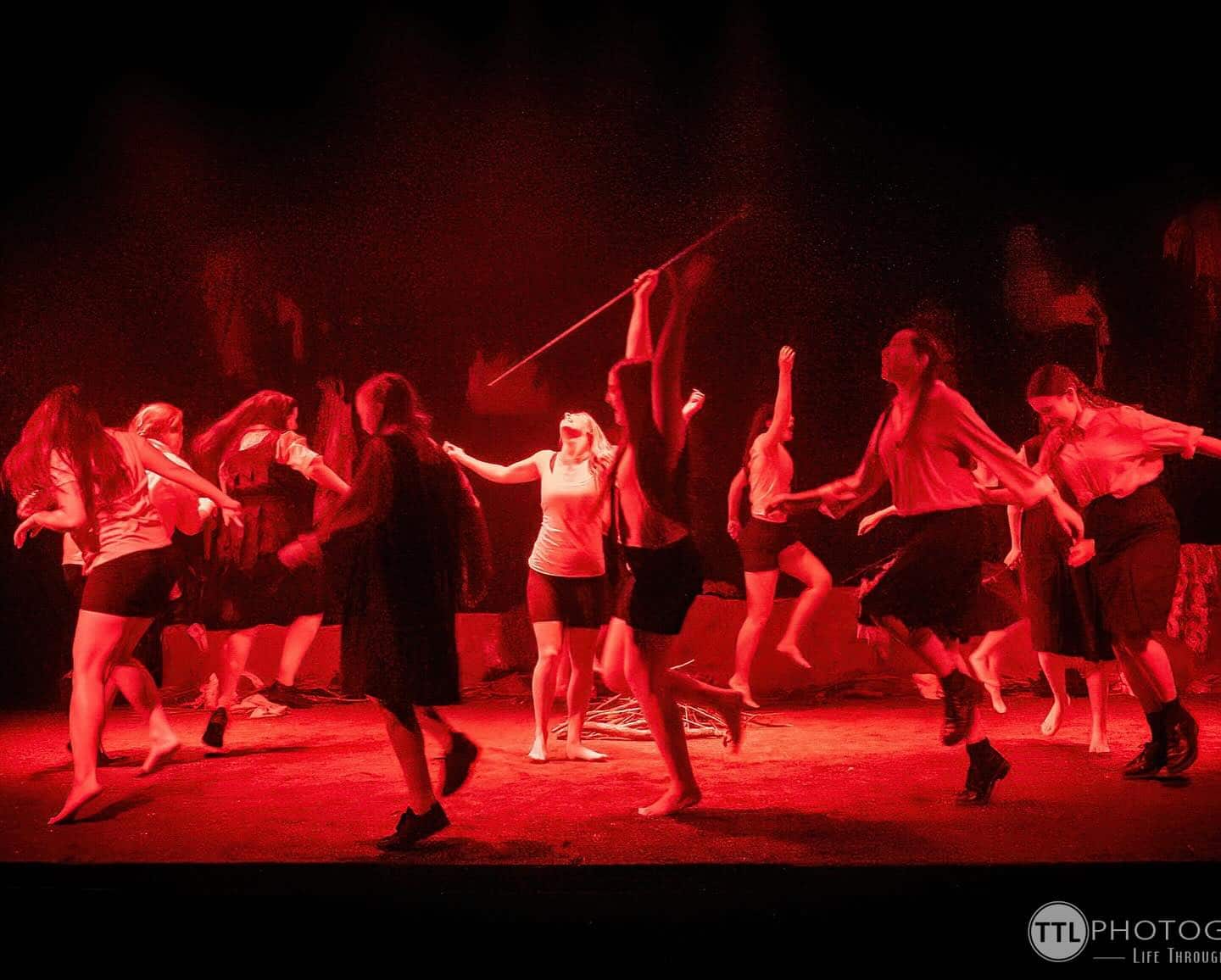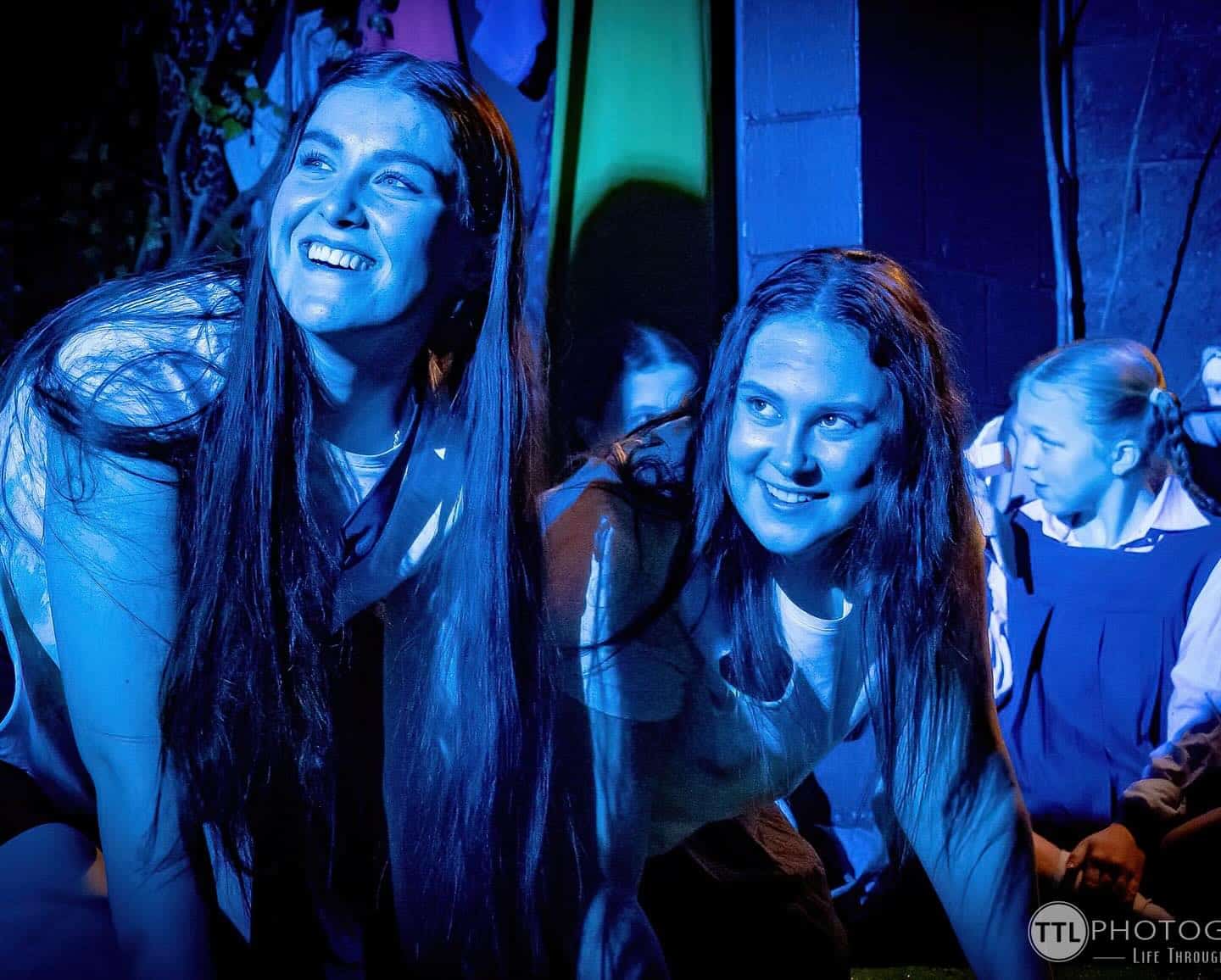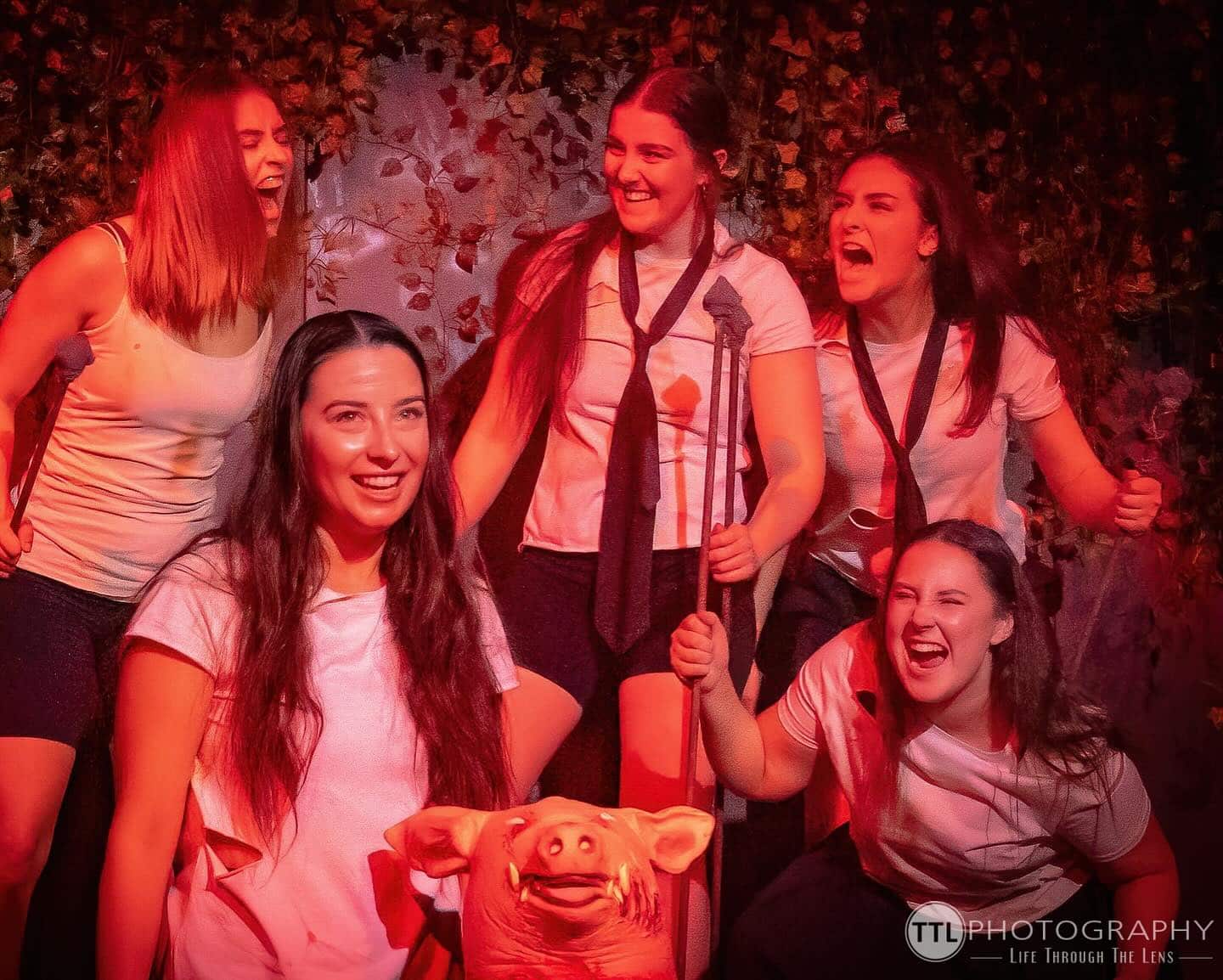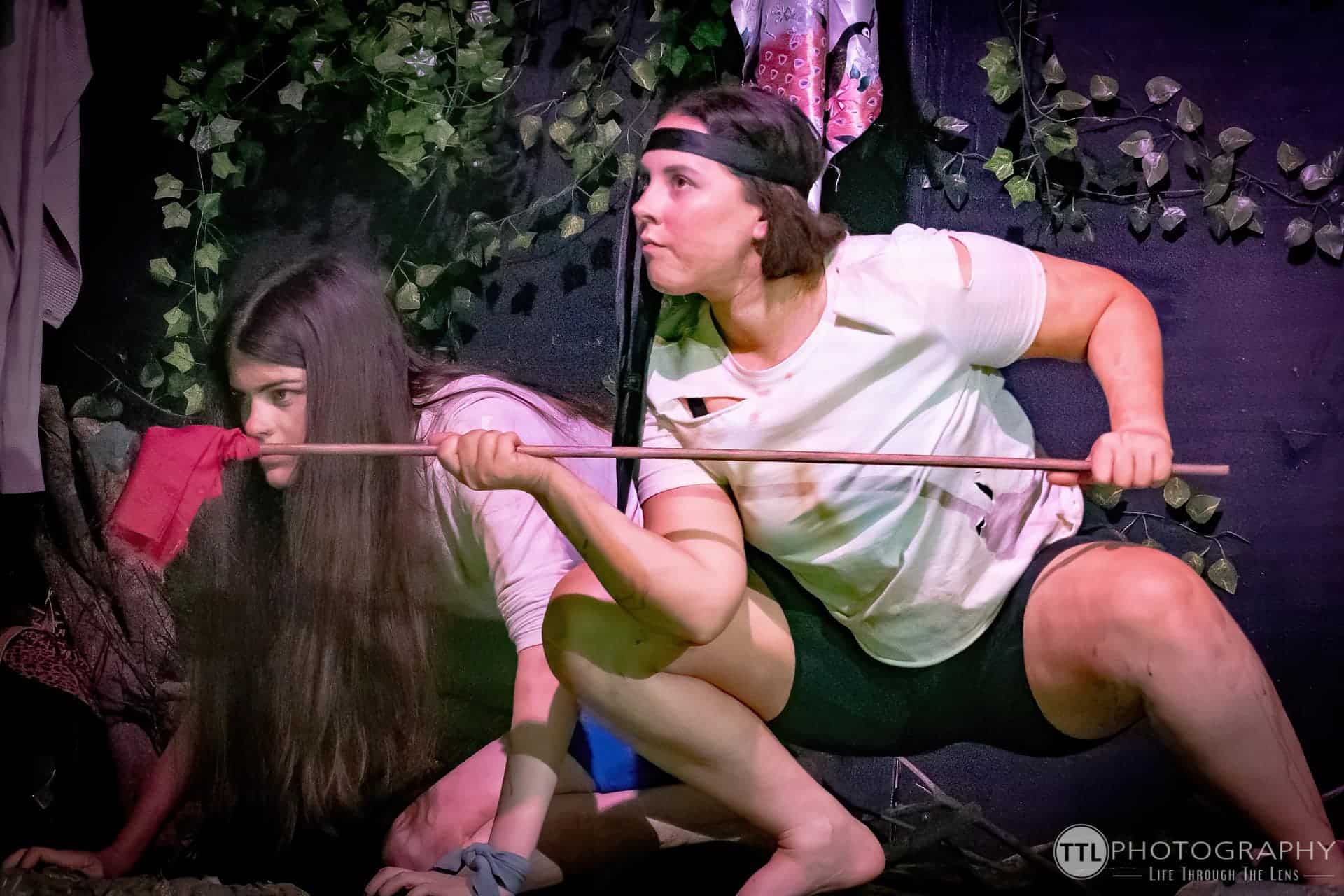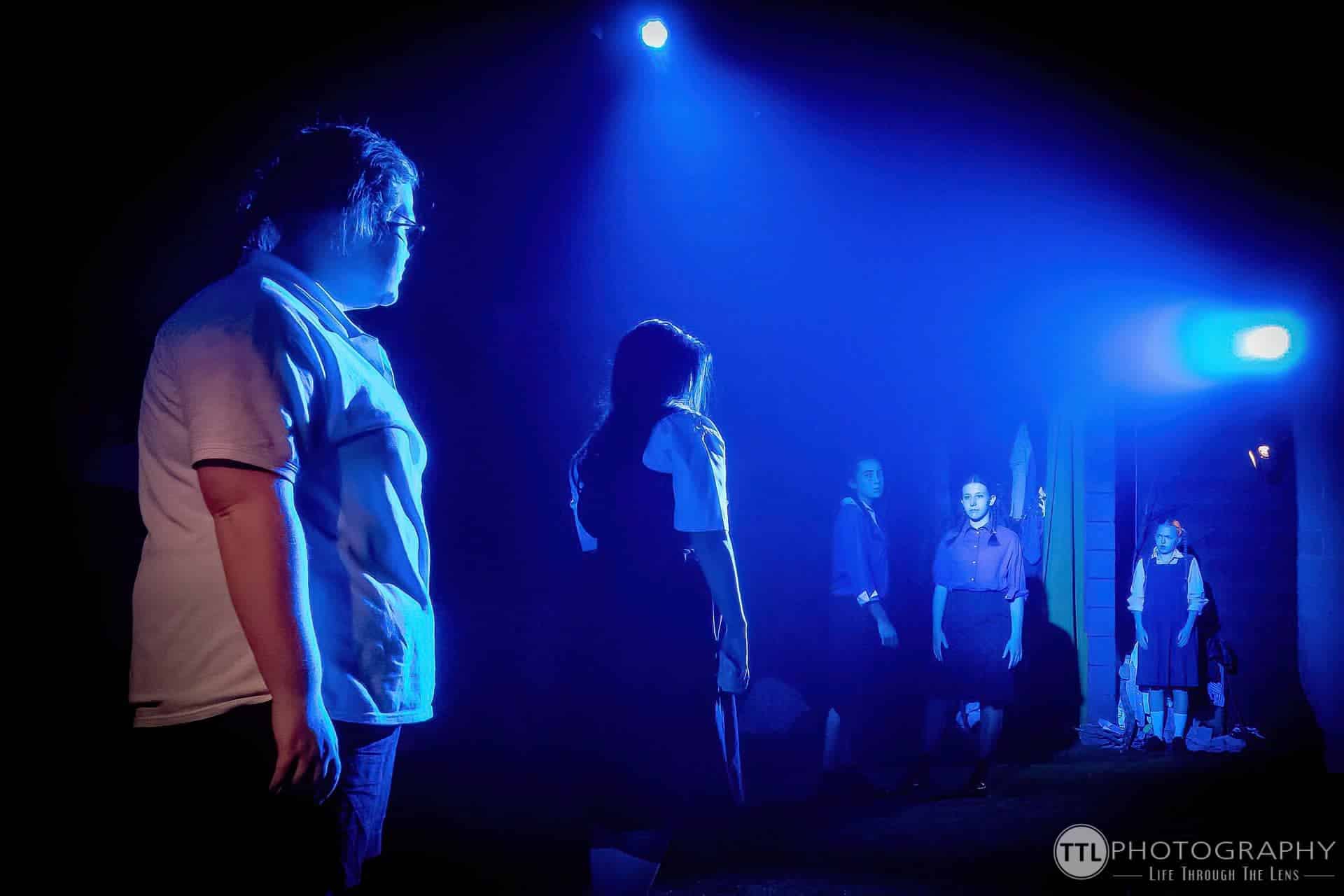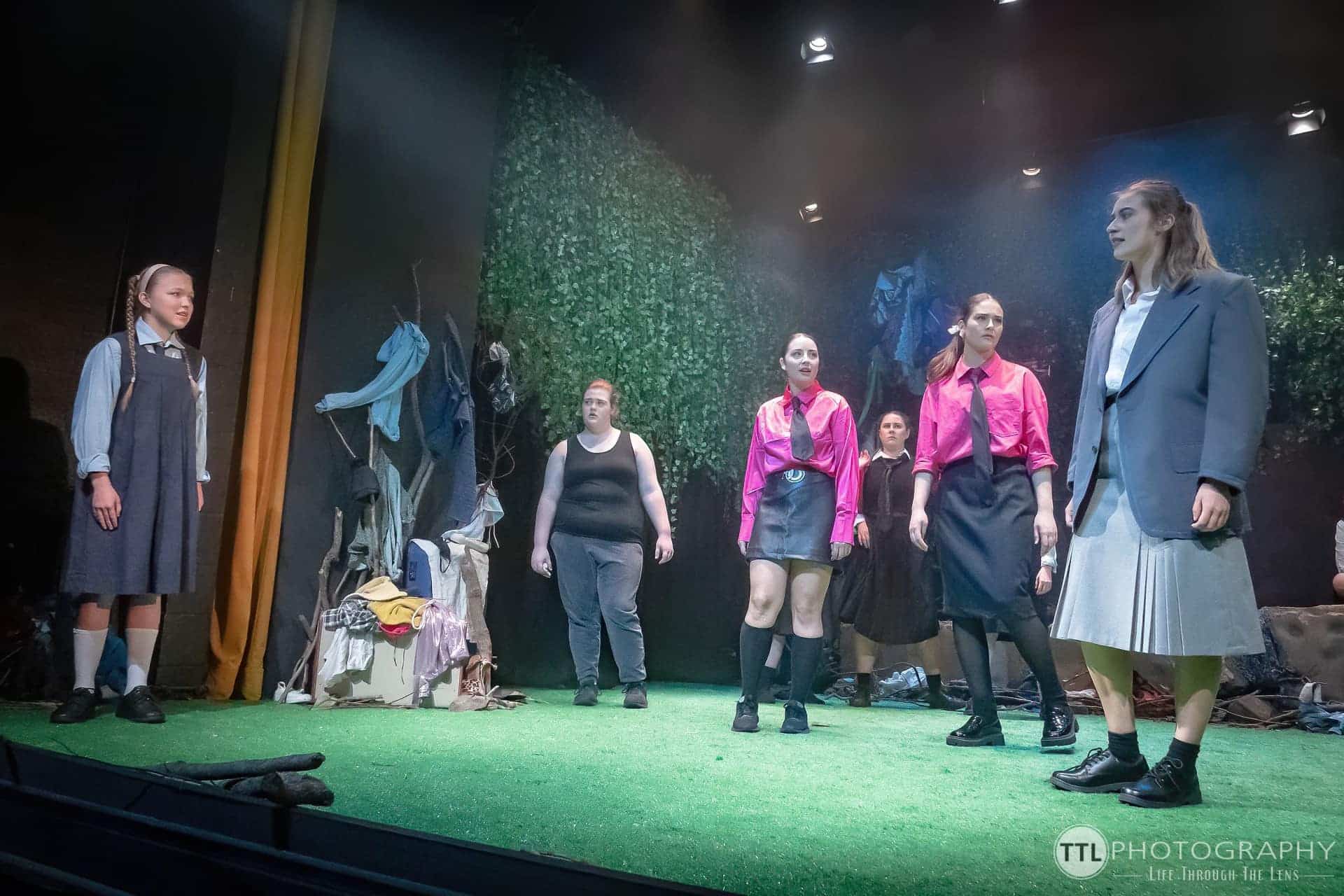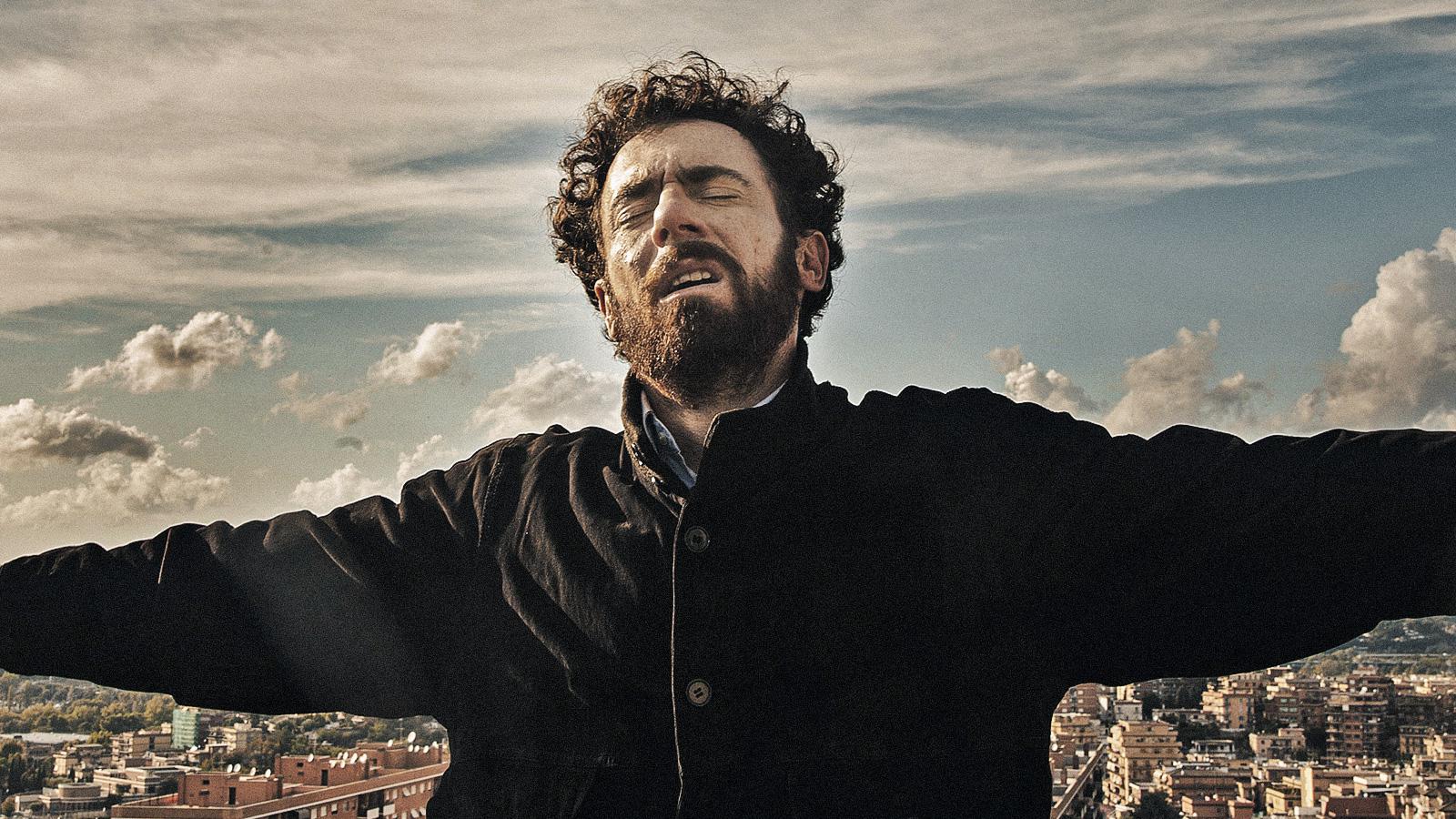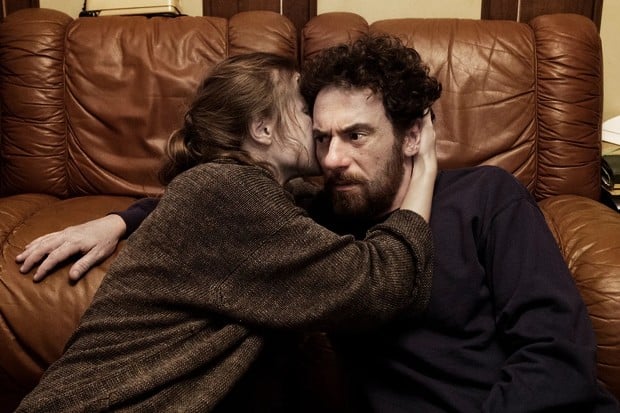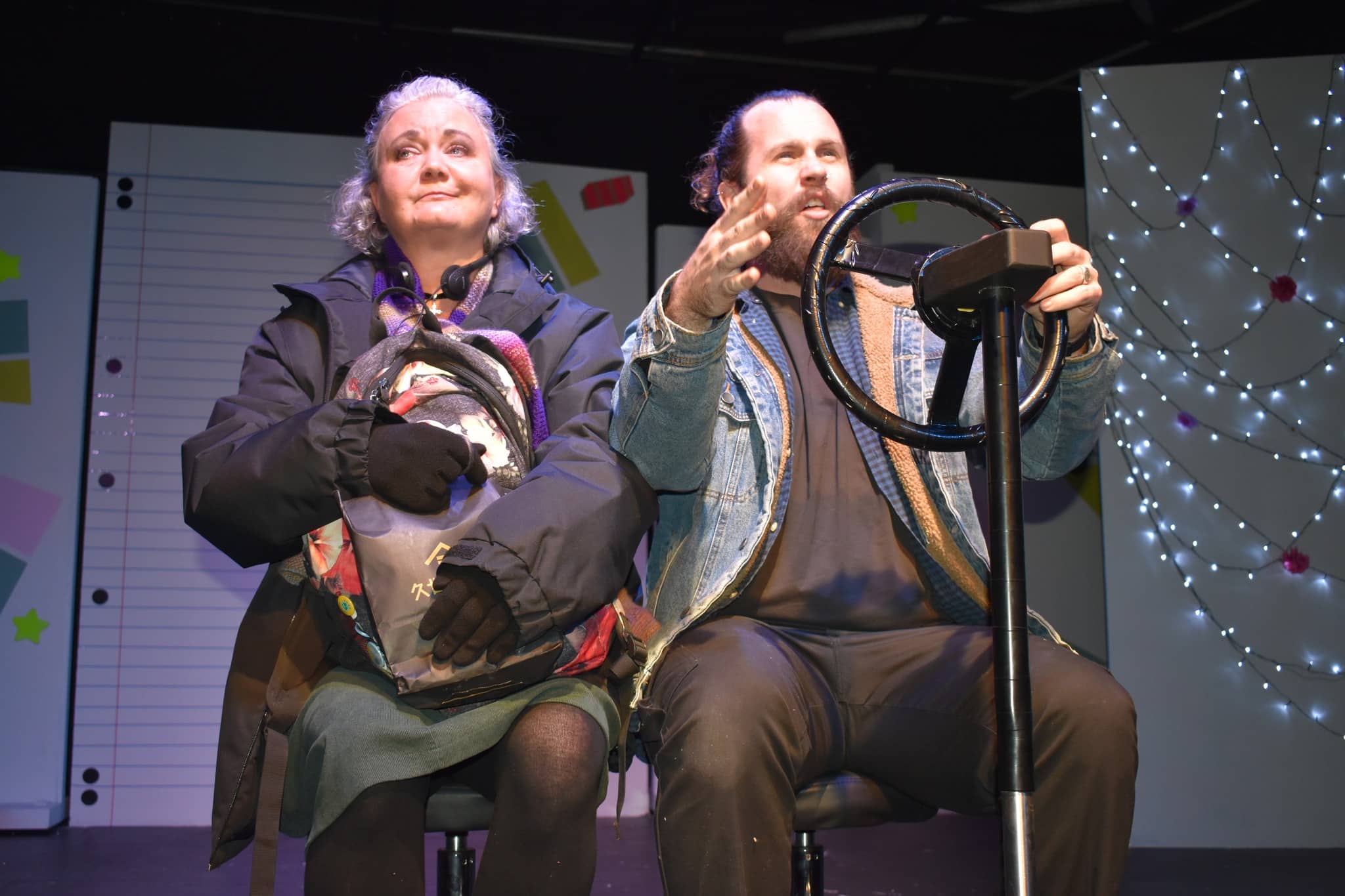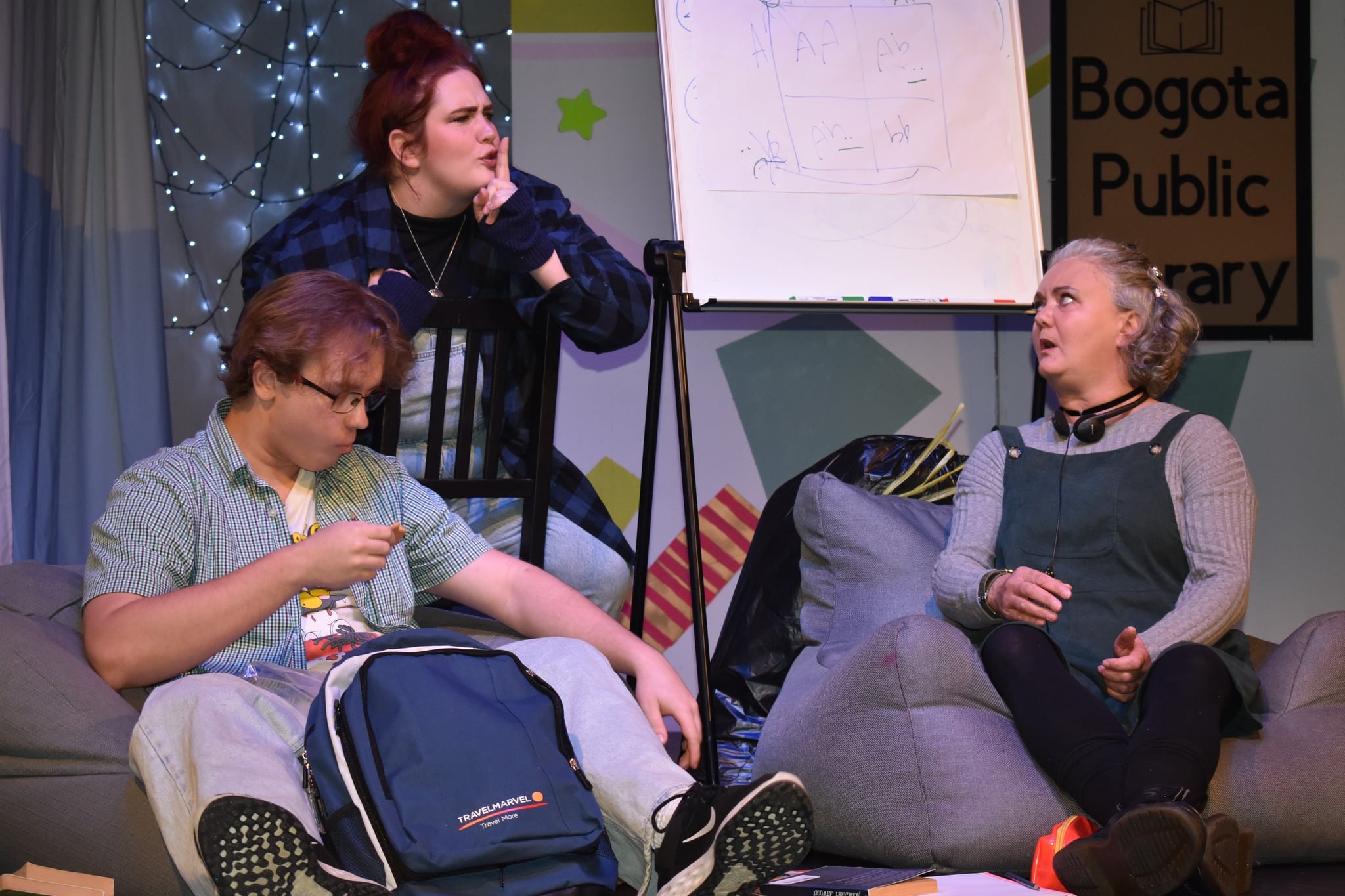Redcliffe Musical Theatre’s interpretation of “The Lovely Bones” is a spellbinding, tragic tale of the Salmon family as they navigate the grief and the investigation behind the murder of their daughter and sister Susie. Watching from her place in the heavens, Susie attempts to interact with and process the scenes that play out in the world she has since left. Based on the book by Alice Sebold, this play was adapted for the stage by Bryony Lavery and directed by local theatre professional Sandra Harman.
One of the first things I noticed was how well the actors took advantage of the space. The set design gave them a white backdrop, using varying heights and whitewash lighting to create a dynamic that clearly defined each scene. To distinguish the spiritual realm from the earthly, they used stairs and a small platform for scenes where Susie (Zoe Hitchcock) would struggle and bargain with the laws and limitations of her personal heaven. When challenging those limitations, Susie would come to centre stage to interact with other actors or deliver emotionally gripping monologues. Whereas, the Salmon family would mainly have their scenes stage right, either seated or around the family dining table. The left of the stage was often utilized in the scenes outside of the family home.
Contemporary theatre techniques, such as the use of music and multi-media were, for the most part, appropriately applied to complement scenes. While there were times they were used to accompany some comical relief, it was otherwise used to portray emotional moments, memorials or memories Susie relived. The simple backdrop allowed the audience to focus in on the actor’s performance, allowing actors to pull focus when needed. As there were a lot of emotional and psychological layers to the characters and plot, I felt that they each portrayed their roles quite well.
Jack and Abigail Salmon (Jonny Sweeper & Dee Heath) were especially commendable in their roles as they portrayed an accurate depiction of grieving parents, trying to keep the family from falling to pieces while still having their personal struggles. The actors playing multiple roles (Rachel Albrecht & Nikki Glowacki) gave impressive performances as Franny, the Sargent, the heavenly counsellor and Grandma Lynn. Minor roles such as Ray (Cobe Robbins), Ruth (Sarina Brener), Lindsey (Rory Argyles) Buckley (Lyds Dunne), Holiday the dog (Tylah-Jay Foster) and Detective Fenerman (Tim Albrecht) were colorful and confident in their depictions, adding the warmth and sentimentality required to paint Susie’s life as it was.
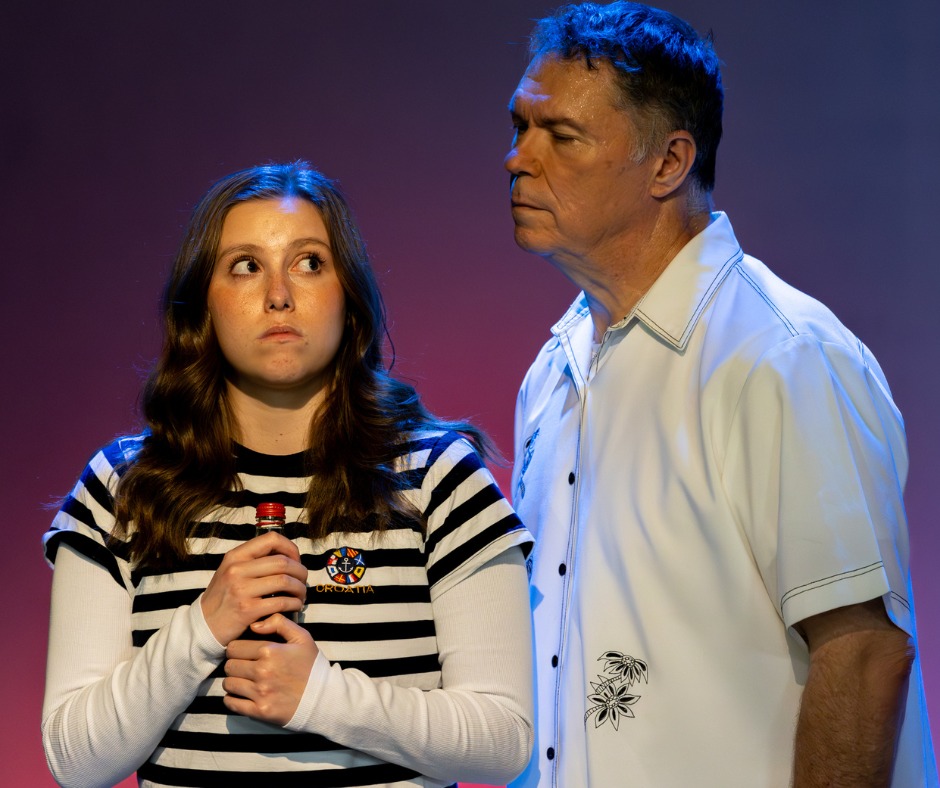
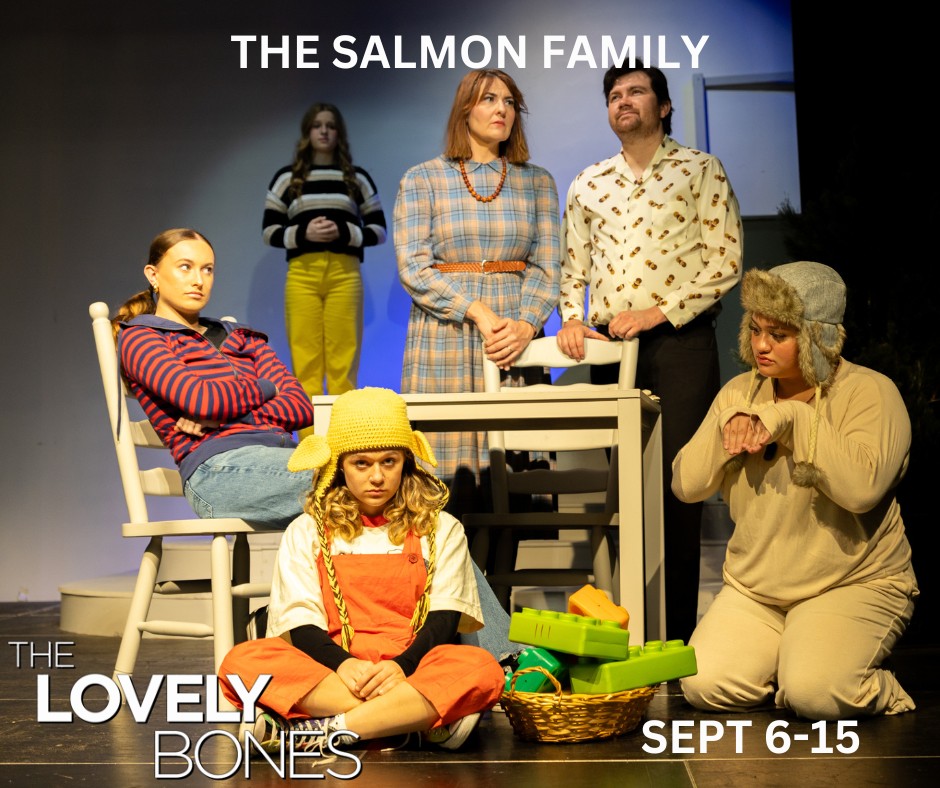
The character of George Harvey (Adrian Mackay) was appropriately executed and especially notable for their subtle ferocity and calmness in the face of conflict. I would have liked more complex scenes for this actor to explore the character further and see more of the actor’s skillset.
The role of Susie Salmon seemed to require a lot of emotional depth and the ability to explore that through multiple, heart-wrenching monologues, all of which actress Zoe Hitchcock executed effortlessly. Stepping into such a demanding role could be daunting for most, but it was quite clear that they were up to the task. I am eager to see their success as they grow in their skills as performers.
While there were occasions where nerves were apparent, I admire the cast for their commitment and professionalism within their roles. If there is any feedback, it would be with the volume and quality of the musical transitions. There were times when the music was too loud or did not seem to line up with the emotion of the scenes. Other times, the music felt too abrupt and distracting, seemingly taking away from the scene. It may put the audience at ease if there were a gentle fade-in or similar approach when playing music to enhance the show.
All in all, I highly recommend “The Lovely Bones”, and I am eager to see what the cast and crew of Redcliffe Musical Theatre do next.


